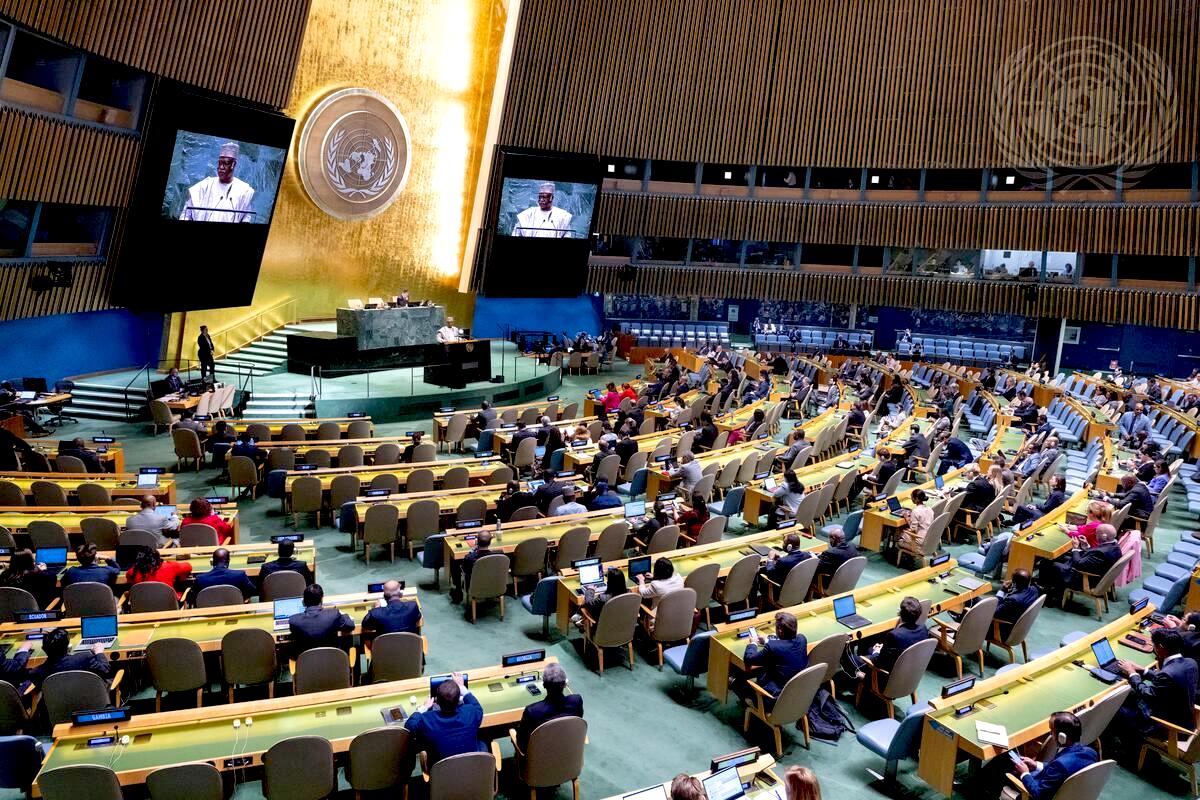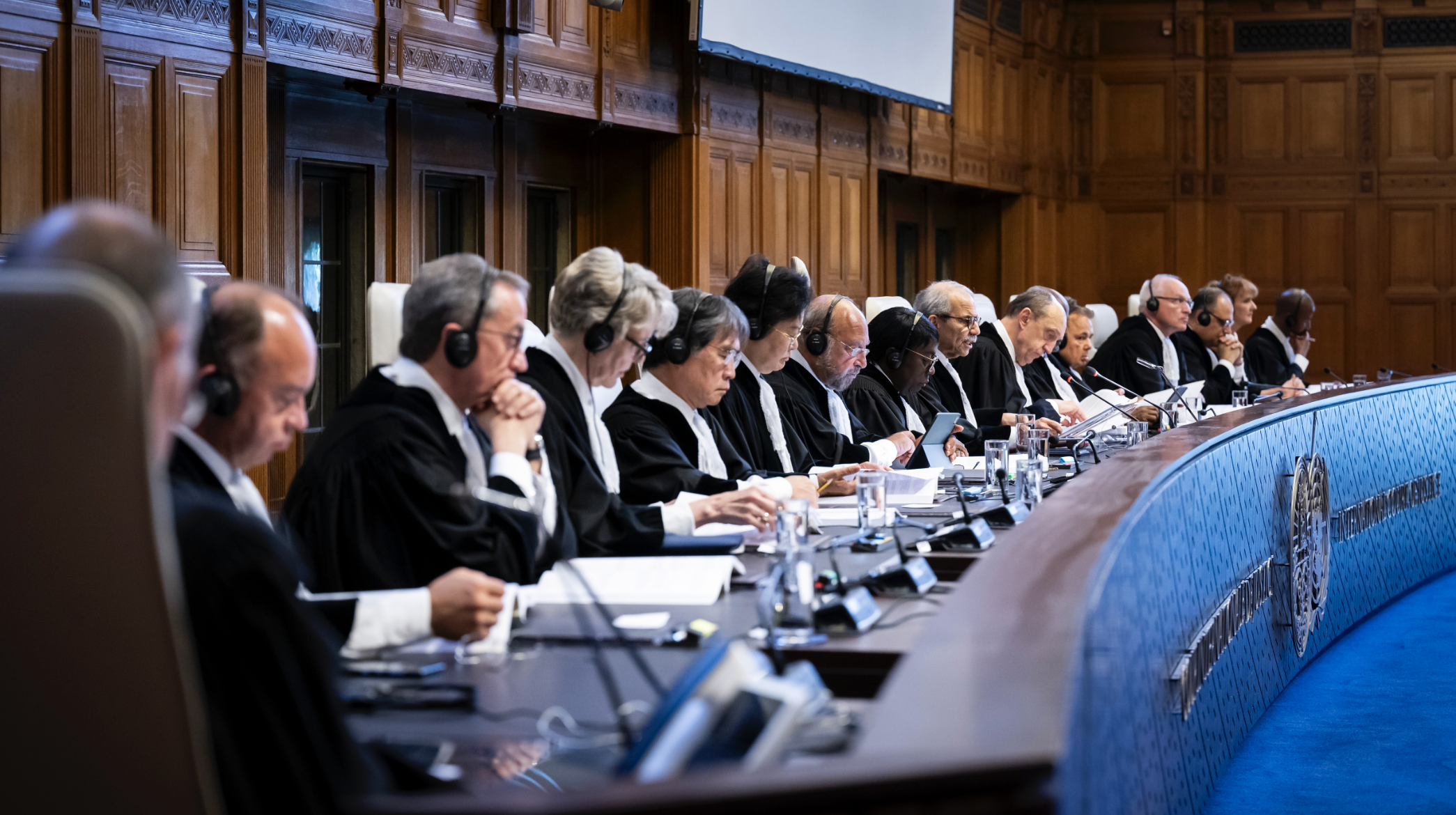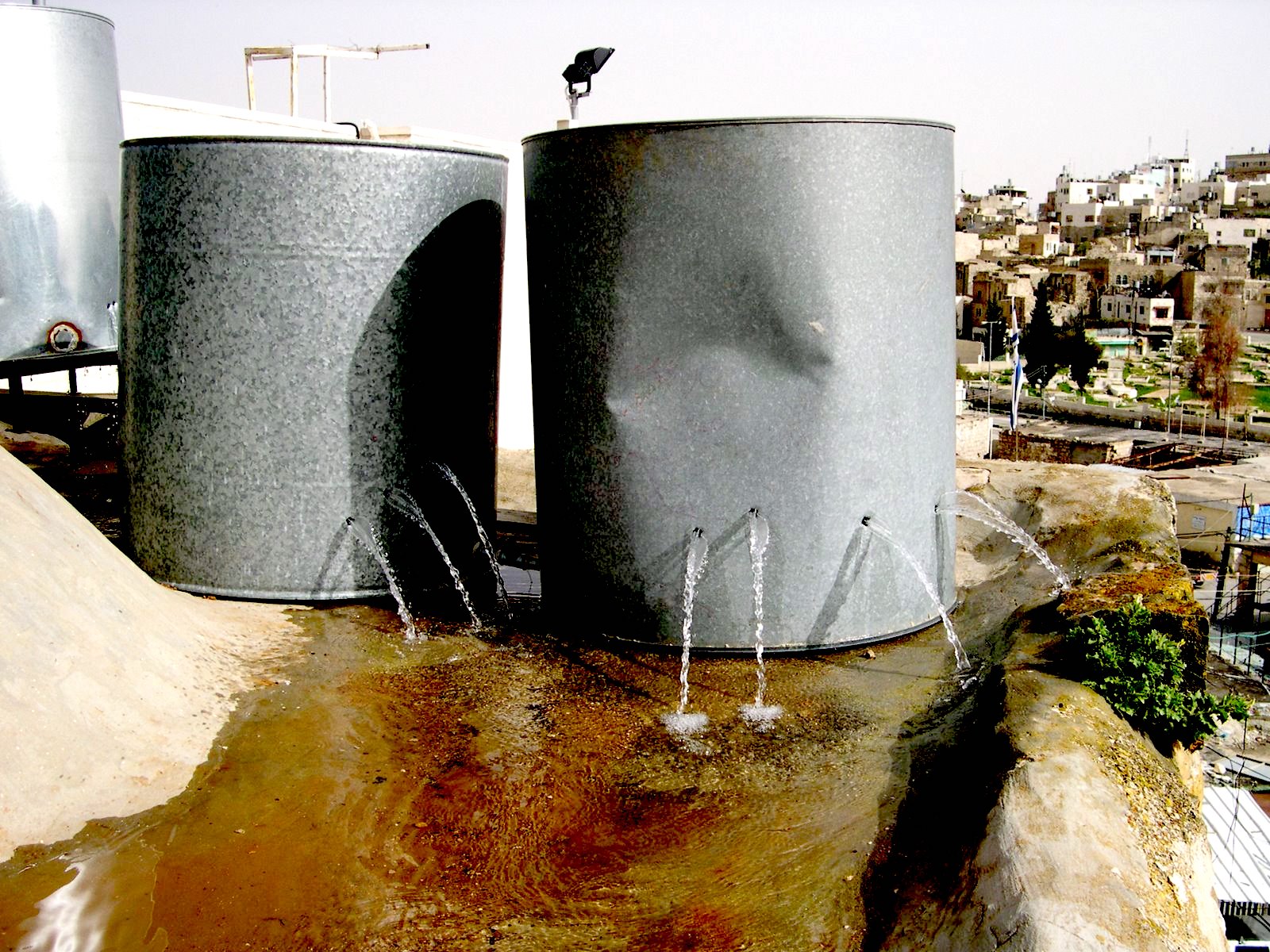Vijay Prashad on the U.N. General Assembly’s resolution last week demanding Israel immediately withdraw from East Jerusalem, Gaza and the West Bank.

U.N. General Assembly Hall on Tuesday as Cameroon’s Philemon Yang, president of the 79th session, addresses an emergency special session on “Illegal Israeli actions in occupied East Jerusalem and the rest of the Occupied Palestinian Territory.” (UN Photo/Eskinder Debebe)
By Vijay Prashad
Peoples Dispatch
 The United Nations General Assembly (UNGA) last week passed a resolution last week that demanded Israel immediately withdraw from the Occupied Palestinian Territory (OPT) of East Jerusalem, Gaza and the West Bank.
The United Nations General Assembly (UNGA) last week passed a resolution last week that demanded Israel immediately withdraw from the Occupied Palestinian Territory (OPT) of East Jerusalem, Gaza and the West Bank.
The resolution used strong language, saying, “Israel’s continued presence in the Occupied Palestinian Territory is unlawful” and that it is “under an obligation” to end its “unlawful presence” in the OPT “as rapidly as possible.”
The resolution was submitted by the State of Palestine, which was recognized as a bona fide part of the United Nations only in June as part of the global disgust with Israel’s genocide in Gaza.
The result of the vote on the resolution was predictable: while 43 countries abstained, 124 voted for the resolution and only 14 voted against it (with the United States and Israel at their head). It is now perfectly legal to say that Israel’s occupation of the OPT is illegal and that this occupation must end immediately.
The UNGA resolution follows the ruling by the International Court of Justice (ICJ) in July. This ICJ ruling argued that Israel’s continued seizure of the OPT is illegal and that it must be ended immediately. The language of the ICJ is very strong:
“The sustained abuse by Israel of its position as an occupying Power, through annexation and an assertion of permanent control over the Occupied Palestinian Territory and continued frustration of the right of the Palestinian people to self-determination, violates fundamental principles of international law and renders Israel’s presence in the Occupied Palestinian Territory unlawful.”
There is no ambiguity about this statement, and none in the UNGA resolution that followed.

Members of the International Court of Justice on July 19, when they delivered their opinion on the illegality of Israeli policies and practices in the Occupied Palestinian Territory. (ICJ)
Rains of Heaven
Going from one village to another in Palestine’s West Bank, I was shown broken water cistern after broken water cistern. Each time the story was the same.
Palestinians, starved of water by the illegal Israeli settlements in the Occupied Palestine Territory (OPT) and by the Israeli military, try their best to harvest rainwater in cisterns.
But each time the Israelis find out about this ancient human practice, the Israeli military shows up and destroys the cisterns. It has become part of the ritual of the Israeli occupation. After the 1967 war, the Israeli government issued Military Order 158 (November 1967) and Military Order 498 (November 1974) which forced Palestinians to seek permits from the Israeli military before they could build any water installation.
During one of these visits, an elderly Palestinian man asked me if I had read either the Torah or the Bible. I told him that I had read bits and pieces of the Bible, but not systematically.
He then proceeded to tell me a story from Deuteronomy about the exodus of the Jews from Egypt, where they had been enslaved. Egypt, they are told, was a land of milk and honey, while the land before them — Palestine — is a land that suffers from a lack of water. The Jews would have to rely upon the “rains of heaven” and not the rivers that irrigated Egypt. These rains of heaven, said the elderly Palestinian man, “are denied to us.”
Israelis who live in the illegal settlements in the West Bank consume on average 247 liters of water per person per day, while the Palestinians can access at most 89 liters per person per day (the World Health Organization or WHO minimum amount is 100 liters per person per day).
It bears repeating that the Israelis live in illegal settlements. This illegality is not made in moral terms but in terms of international law.
Several United Nations Security Council resolutions have said that Israel is in violation of the Fourth Geneva Convention as it extends its settlements in the West Bank: Resolution 446 (March 1979), Resolution 478 (August 1980), and Resolution 2334 (December 2016).
The 2024 ICJ ruling and the new UNGA resolution underlie the illegality. We did not need more laws to clarify the situation, but it does help that the new statements are unequivocal.
Water in Gaza

Palestinian water tanks destroyed by settlers in Hebron, 2009. (ISM Palestine, CC BY-SA 2.0, Wikimedia Commons)
A decade ago, the only time I was in Gaza, I was horrified by the lack of basic water supplies. Wadi Gaza, which runs through the Gaza Strip, is the culmination of rivers that stretch into the West Bank (Wadi al-Khalil) and rivers that run into the al-Naqab desert (Wadi Besor).
It would be an act of foolishness to drink from Wadi Gaza or from the coastal aquifer, most of which was polluted by insufficient sewage services in Gaza long before this genocidal war. Most people in Gaza, even in 2014, bought water from expensive private tankers. There was no other choice.
If the situation in Gaza was objectionable a decade ago, it is now beyond belief. The average Palestinian in Gaza, who has been forcibly ejected from their homes (most of them bombed), now survives on an average of 4.74 liters of water per person per day (that is 95.53 liters less than the WHO-mandated minimum for a person to survive).
Since October 2023, the daily use of water amongst the Palestinians of Gaza has declined by 94 percent. The scale of the destruction of Gaza’s infrastructure is overwhelming (as shown by the UN Satellite Centre).
In April 2024, only 6 percent of Rafah’s water and sanitation infrastructure showed signs of damage, but by June, the Israelis had destroyed 67.6 percent of all the infrastructure. It has been clearly demonstrated that the Israelis are targeting the basic elements of life, such as water, to ensure the annihilation of the Palestinians in the OPT.
And so, this is precisely why the UNGA voted overwhelmingly for Israel to exit from the OPT and cease its annexationist policies. The Israeli government responded with defiance, saying that the resolution “tells a one-sided, fictional story” in which there is no violence against Israel.
However, what the Israeli government ignores is the occupation, which frames the entire conflict. A people who are occupied have the right to resist their occupation, which makes the violence against Israel important to register but not central to the argument.
The ICJ and the UNGA say that Israel’s occupation must end. That point is not addressed by the Israeli government, which pretends that there is no occupation and that they have the right to annex as much land as possible even if this means ethnic cleansing. Cutting access to water, for example, is one of the instruments of that ceaseless, genocidal violence.
Vijay Prashad is an Indian historian, editor and journalist. He is a writing fellow and chief correspondent at Globetrotter. He is an editor of LeftWord Books and the director of Tricontinental: Institute for Social Research. He is a senior non-resident fellow at Chongyang Institute for Financial Studies, Renmin University of China. He has written more than 20 books, including The Darker Nations and The Poorer Nations. His latest books are Struggle Makes Us Human: Learning from Movements for Socialism and, with Noam Chomsky, The Withdrawal: Iraq, Libya, Afghanistan and the Fragility of U.S. Power.
This article is from People’s Dispatch and was produced by Globetrotter.
Views expressed in this article may or may not reflect those of Consortium News.
Please Donate Today to CN’s Fall Fund Drive



All discussions of biblical passages do more damage than good. The current, modern archaeology makes clear that the bible is not history but a political discourse as a justification, written many centuries after the fictional events recorded there that are taken to be facts. Only ignorance keeps people from continuing to refer to it as a record of actual historical events. And, doing so simply reinforces the Israeli/Zionist claim on the land.
How will the US, with its rules based order mantra, respond to a new ‘official’ rule about Israel’s illegal occupation, that it doesn’t like?
It can’t entirely ignore the UN, as much as it would like to, but I imagine it will still try to obfuscate and distract with a series of excuses, justifications, lies, and other methods of deflection.
It will be yet another nail in its coffin, as it will be for Israel, too.
“It is now perfectly legal to say that Israel’s occupation of the OPT is illegal and that this occupation must end immediately.”
We must remember this. And quote it as often as possible.
Israel and the USA have no respect for international law or any care for peace or co-operation.